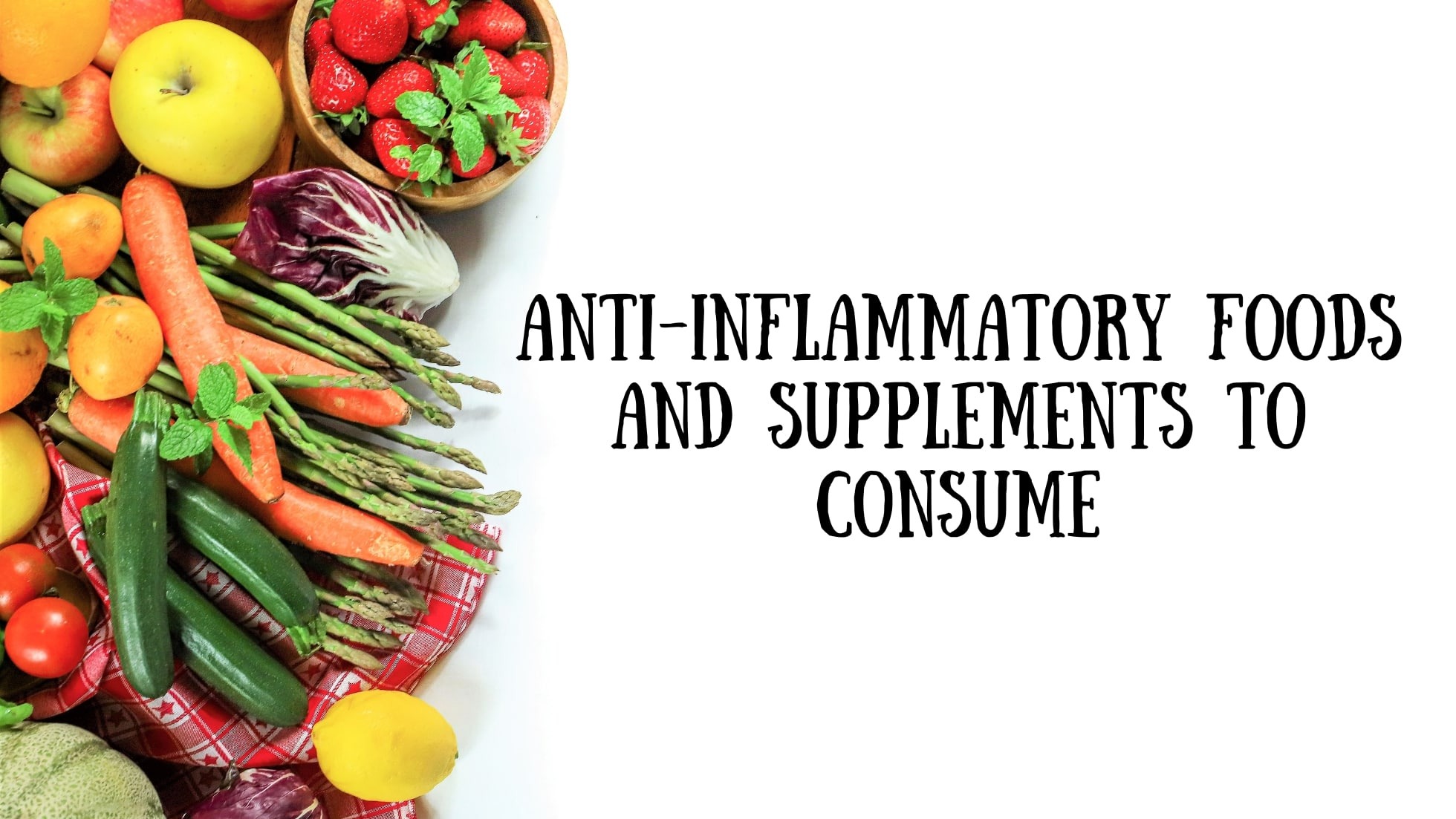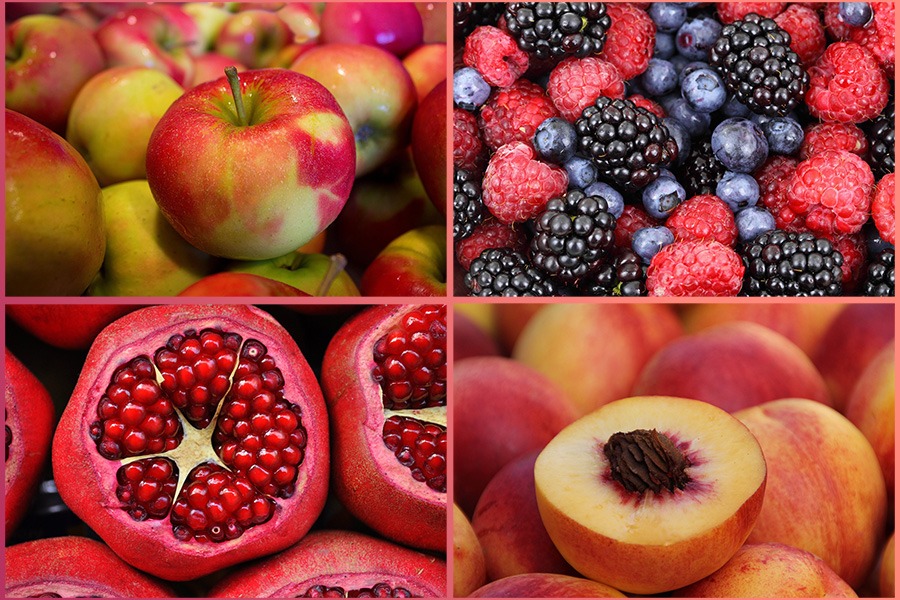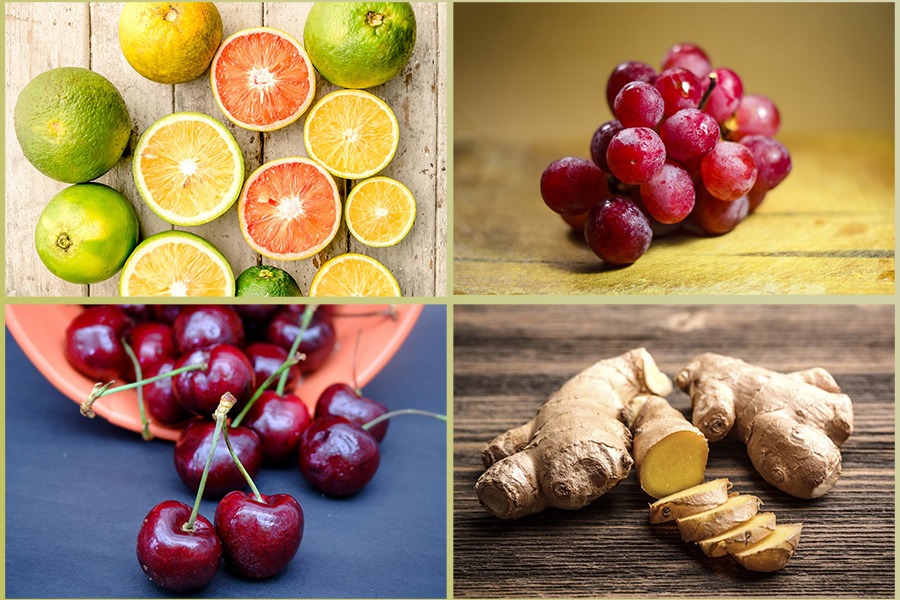
Consume these fruits and supplements for their anti-inflammatory benefits
They’re nature's original desserts and spices. And naturally sweet fruits and spices are essential in protecting our bodies from disease.
Eating at least one-and-a-half to two cups of diverse fruits every day can boost antioxidant activity. Fruits are particularly abundant in anti-inflammatory compounds, which are important in protecting our bodies from heart disease, diabetes, and certain forms of cancer and bowel disease.
How to get enough healthful fruits in your diet? One strategy is to eat with the seasons, choosing grapes and stone fruits in the summer, apples and pears in the fall, persimmons and pomegranates in the winter, and citrus and cherries in the spring.
While all fruits tend to be rich in disease-protective nutrients, some have received particular attention in the nutrition world for their anti-inflammatory benefits.

Berries: From strawberries and blackberries to cranberries and blueberries, these gemlike fruits are particularly potent in antioxidant and anti-inflammatory activity. Along with fiber and vitamin C, berries possess plant pigment phytochemicals, such as anthocyanins and ellagic acid, which may be behind their health benefits. Studies have linked increased berry consumption with lower risks of heart disease, Alzheimer's disease, and diabetes.
Apples: Maybe it's true what they say about an apple a day. A study of nearly 35,000 women, found that consumption of this fruit—along with its relative, pears—was linked with a lower risk of death from heart disease. The star components of apples—fiber, vitamin C, pectin, and polyphenols—have been associated, primarily in animal studies, with anti-inflammatory effects and an increase in beneficial microbes in the gut.
Stone fruits: Cherries, peaches, apricots, and plums are all examples of stone fruits. These fruits contain fiber, vitamin C, potassium, and a variety of phytochemicals associated with their colors. For example, cherries have garnered the lion's share of the research among stone fruits. Some studies suggest that cherries can reduce pain and soreness after exercise as well as a reduced risk of gout attacks. The high levels of phenolic compounds in cherries, which have been linked to reduced inflammation, may be behind those benefits.
Citrus: Oranges, grapefruit, lemons, and limes are famously rich in vitamin C. They also contain fiber, potassium, calcium, B vitamins, copper, and anti-inflammatory phytochemicals such as flavonoids and carotenoids. Though there is little human research on citrus, the nutrients found in citrus fruits have been associated with heart-protective effects.
Pomegranates: Those tiny pomegranate seeds contain big rewards of vitamins C and K, potassium, fiber, and potent phytochemicals such as anthocyanin and resveratrol. These nutrients may be behind the potential benefits of eating pomegranates.

Grapes: These succulent fruits are bursting with fiber, vitamins C and K, and powerful phytochemicals.
Ginger and Turmeric: these are two types of flowering plants that are widely used in natural medicine.
Ginger, or Zingiber officinale, originated in Southeast Asia and has long been used as a natural remedy for various health conditions.
Its medicinal properties are mostly due to the presence of phenolic compounds, including gingerol, a chemical thought to possess potent anti-inflammatory and antioxidant properties.
Turmeric, also known as Curcuma longa, belongs to the same family of plants and is often used as a spice in Indian cooking.
It contains the chemical compound curcumin, which has been shown to aid in treating and preventing several chronic conditions.
Both ginger and turmeric can be consumed fresh, dried, or ground, and added to a variety of dishes. They’re also available in supplement form. Look for a Turmeric supplement with black pepper to aid its absorption.
 Add Row
Add Row  Add
Add 










Write A Comment